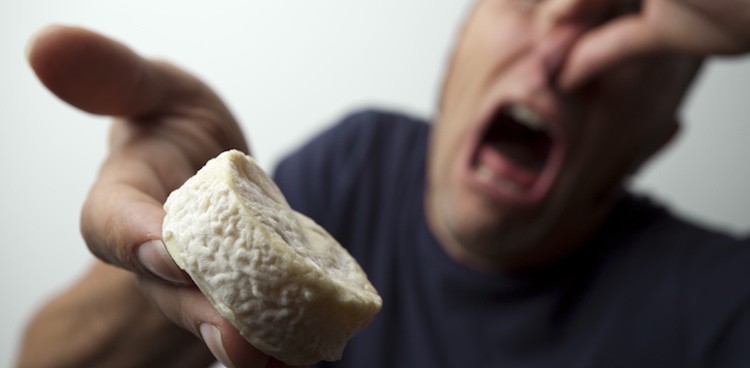
What causes some cheeses to smell like ammonia?

Ammonia is a waste product created by the decomposition of nitrogen-containing proteins in the cheese and on its surface. This process is natural, and, when in balance with the well-developed aroma and flavor of a properly ripened cheese, it’s not unpleasant. But if you’ve unwrapped and cut into your favorite soft cheese only to find it smelling intensely of ammonia, then you have a neglected, overripe cheese on your hands.
Some of the ammonia will blow off a cheese if it is left unwrapped in a temperate, well-ventilated room. But if you find the cheese noxiously ammoniated soon after buying it, return it to your cheesemonger, who should replace it or refund your money, and hopefully investigate whether the problem was caused by the supplier or his or her own oversight.
To prevent a healthy cheese from becoming ammoniated, the best strategy is to eat it promptly! Otherwise, wrap it in a material that allows the cheese to breathe a little, such as cheese paper or wax paper; storing it in airtight plastic wrapping for too long is the primary cause of overly ammoniated cheese.
Feature Photo Credit: Mr. Flibble via Compfight cc
Carlos Souffront has worked with cheese for nearly 15 years, the last 11 spent in the dairy department at Zingerman's Delicatessen in Ann Arbor, Michigan. As cheesemonger, his responsibilities include selecting, buying, finishing, and merchandizing traditional cheeses from Europe and the U.S.





